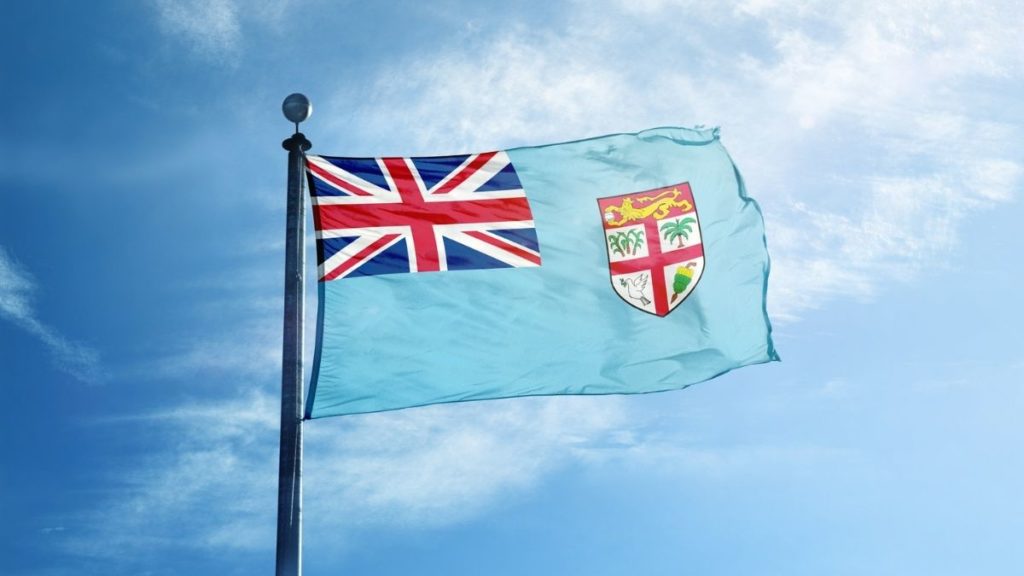If you’re interested in learning the Fijian language then you may want to know a little bit more about it before starting.
This post will cover if it is hard to learn Fijian as an English speaker and the similarities and differences between English and Fijian. It will also answer how long it takes to learn Fijian.
Table of Contents
Is Fijian Hard To Learn?
Language Families
English is part of the Indo-European language family which means it has lots of similarities with other languages that are part of that family including French, Spanish, Italian and German.
Fijian is part of the Austronesian language family. Other languages that fall within this category include Indonesian, Malay, Tagalog, Hawaiian and Tahitian.
Fijian falls under the Oceanic branch of this family meaning it’s more closely related to other Oceanic languages like Samoan and Tahitian.
These language families group together languages that descend from a common ancestral language.
Learning languages from the same language family tends to be easier as these languages share many similar characteristics with one another. The similarities vary between languages but can include vocabulary, word order, grammar, pronunciation and word composition.
As English and Fijian are members of different language families, this means it’s harder to learn than some other languages. For example, it will be harder to learn Fijian compared to learning French or Spanish as an English speaker.
By definition, no Austronesian language shares any ancestor with any Indo-European language which means the languages developed along completely separate paths.
If you already know another Oceanic language such as Samoan, Tahitian, Tongan or Māori then you would find Fijian very easy to learn.
Despite the languages being from different language families, Fijian isn’t one of the hardest languages to learn for an English speaker.
Mandarin, Korean, Japanese and Arabic are often cited as the most difficult languages for English speakers to learn and Fijian is nowhere near as hard as these.
Speakers Of Fijian
One thing that makes Fijian difficult to learn is that it is not widely spoken around the world. There are only approximately 600,000 speakers of Fijian in the world.
When learning a language, one of the best and most important ways is to immerse yourself in the language and practice with native speakers as often as possible. This can be very difficult with Fijian, especially if you don’t live in Fiji.
If you do live in Fiji or in another community with native Fijian speakers then this shouldn’t be an issue for you.
Lack Of Resources
Resources such as books, courses and classes are really important when learning a new language.
Another thing that makes Fijian really difficult to learn is that there are not that many good resources out there for learning Fijian.
Compared to other languages like Spanish and French where there are hundreds of courses and books to choose from, the Fijian resources available are very limited.
Even popular language learning platforms like Duolingo don’t teach Fijian.
The online platform uTalk does offer a Fijian course. They focus on game-based learning and state that their course uses native speakers and features more than 2,500 everyday words.
The Lonely Planet Fijian Phrasebook & Dictionary is another fantastic resource and reference point for the Fijian language. This is a great book for beginners that will teach you all the basics.
The website Digital Dialects also has some fun online games which teach Fijian words. They don’t cover a ton of content but will get you familiar with some basic words in Fijian.
The best part is each word has a recording by a native speaker so it’s a great place to begin your Fijian language learning journey.
Unfortunately, if you don’t know anyone who speaks Fijian you may find it very difficult to learn Fijian due to a lack of good resources.
How Similar Are Fijian And English?

There are many similarities and many differences between English and Fijian. Below I have summarised the main ones.
Similarities Between Fijian & English
English and Fijian do have some similarities, many of these make learning Fijian much easier.
Writing
Reading and writing in Fijian is made much easier for English speakers due to the fact the languages both use the Latin script.
Whilst there are some variations in pronunciation that you’ll have to learn, as an English speaker you have a great head start when it comes to reading and writing.
Take a look at the words below in Fijian.
- Blue – Karakarawa
- Red – Damudamu
- Green – Drokadroka
- Yellow – Dromodromo
- Black – Loaloa
- White – Vulavula
Try to say these words and then check out the video below to hear the actual pronunciation of them. Your pronunciation won’t be perfect if you haven’t studied the alphabet, but you’ll have a general idea of how to say the words.
Loan Words
Fijian has taken some loan words from English. This is great for someone learning the language because you’ll already know or recognise some words right from the beginning.
These words include plants, animals, modern technology and the months in Fijian.
Here’s a few examples:
- Rabbit – Ravete
- Tiger – Taika
- Elephant – Elevaniti
- Computer – Kobiuta
- Television – Televiseni
- Telephone – Talefoni
- Motorbike – Motopai
- Taxi – Tekesi
- Driver – Draiva
- Helicopter – Elikoputa
- Jacket – Jakete
How many of them do you recognise?
Differences Between Fijian & English
As English and Fijian are from different language families, there are many differences. Some of these do make Fijian harder to learn.
Pronunciation
Even though Fijian is written in the Latin script, it is pronounced differently to English and so you’ll have to learn the correct way to pronounce Fijian letters.
For example, in Fijian the letter ‘d’ is pronounced ‘nd’, ‘c’ is pronounced ‘th’ and ‘q’ is pronounced ‘ng’.
There’s only a few letters that are different from English so you’ll pick up the pronunciation pretty quickly.
Word Order
Word order in Fijian is a bit different to English.
In English the standard word order is subject-verb-object.
Example:
John throws the ball.
John = subject, throws = verb, ball = object.
Fijian is different as it is a verb focused language and it’s standard word order is verb-object-subject. Quoting the same example as above, in Fijian the phrase ‘John throws the ball’ would be worded as ‘Throws the ball John’.
This may take a while to get used to for a native English speaker.
Pronouns
Pronouns in Fijian are a bit complicated and very different to English.
Like many other languages, Fijian recognised 3 persons – 1st person, 2nd person and 3rd person.
For each of these persons, the pronouns will differ based on the number of people you’re speaking to.
In English, we just have singular (1 person) and plural (more than one person). In Fijian, there are 4 different numbers represented – singular, dual, paucal and plural.
Singular refers to 1 person, dual refers to 2 people, plaucal refers to more than 2 people who have some relationship (e.g. family/work) and plural refers to other groups with no relationship.
This can take a while to get your head around and you’ll need lots of practice to ensure you use the correct pronouns especially when speaking with groups.
In addition, the first person pronouns also have an inclusive form and an exclusive form.
These are essentially just different ways of saying ‘we’ to include different people e.g. ‘we’ that includes myself and the person I am addressing and another version of ‘we’ which does not include the person I am addressing.
In English, we just use the one word ‘we’ but in Fijian there are different words used in different situations.
How Long Does It Take To Learn Fijian For An English Speaker?

Unfortunately there isn’t enough statistical data available to determine how long on average it takes to learn Fijian.
However, we are able to provide a rough estimate based on the research done by the Foreign Service Institute.
It will take between 36 weeks and 44 weeks to learn Fijian. This is the equivalent of 900 – 1100 classroom hours.
This assumes you do 25 hours of studying a week. If you’re not able to dedicate this much time to learning Fijian it may take you longer.
Your progress may actually be much faster if you already speak a similar language such as Samoan, Tahitian, Tongan or Māori.
The Foreigh Service Institute has a language classification system that categorizes how long it takes for a student to reach ‘professional working proficiency’ in a language.
This is one of the best and most accurate language classification systems out there as they’ve spent decades analysing how long it takes their students to learn new languages.
Fijian isn’t listed on their language list, however it is expected that it would fall under either category II or category III.
This is based on the fact that other Austronesian languages such as Malay, Indonesian and Tagalog fall under these categories. These are the most closely related languages to Fijian on the list.
Malay and Indonesian fall under category II which takes approximately 36 weeks (900 class hours) to learn. Tagalog falls under category III which takes approximately 44 weeks (1100 class hours). We would expect Fijian to fall somewhere in between.
Is Fijian Worth Learning?

The answer to whether Fijian is worth learning is really up to you.
As I mentioned previously, it would take you roughly 900 – 1100 hours or 36 – 44 weeks to learn Fijian. This is a lot of time and effort and you have to have a lot of motivation and discipline to achieve this.
If you do decide to learn Fijian you will get a lot out of it.
Fijian is spoken by around 600,000 people around the world, mainly in Fiji.
By learning Fijian you would be able to communicate with 600,000 people and enjoy their vibrant and interesting culture.
If you visit the islands of Fiji, people will be very happy to hear you speak their language and most people are more than happy to help you practice.
Learning the language will help you form meaningful connections and relationships whilst in Fiji and get a lot more out of your trip.
Related Post: Is Fijian A Dying Language?
If you’re interested in learning Fijian why not start by learning how to say hello in Fijian.
Check out our other Fijian content here.
Related Posts:
